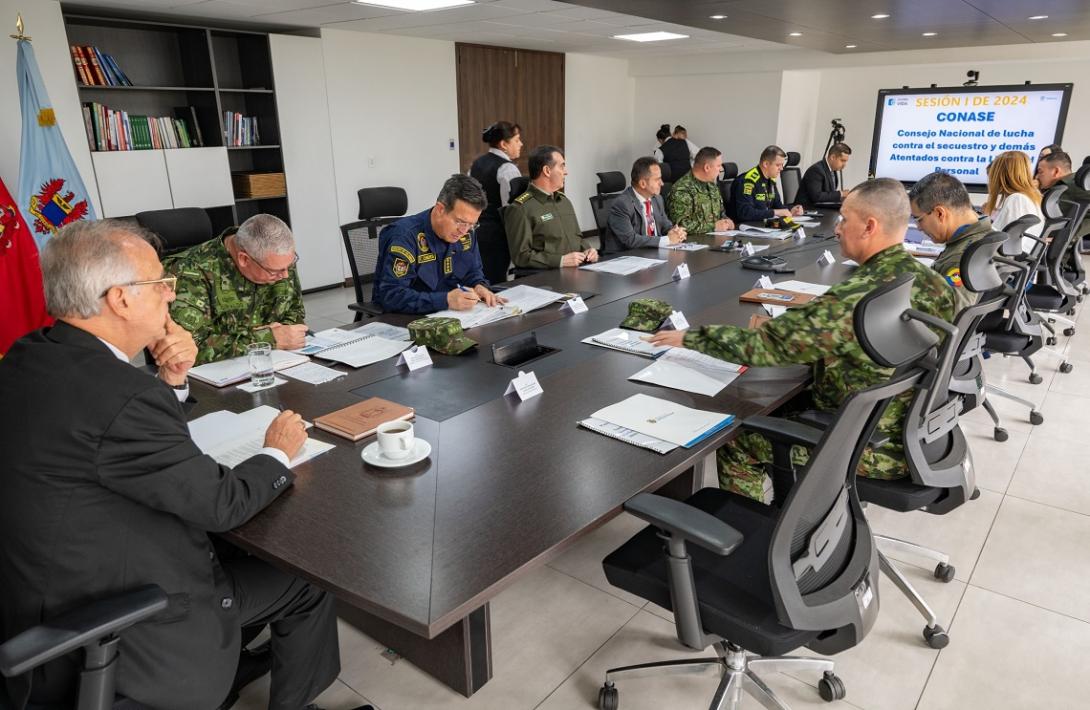The implementation of the new Comprehensive Strategy to Combat Kidnapping and Extortion 2024-2026, as well as the creation of three new GAULA (ANTI-EXTORTION AND ANTI-KIDNAPPING GROUPS), seek to reduce the threat of crimes against personal freedom in Colombia.
A new Comprehensive Strategy to combat Kidnapping and Extortion in Colombia was approved by the National Council to Combat Kidnapping and Others Attacks against Personal Freedom (CONASE), an instance led by the Ministry of Defense.
These operations incorporate the participation of civil society and strengthens the inter-institutional work of institutions such as the Military Forces, the National Police, the Attorney General's Office and INPEC, to obtain more results against criminal structures.
"This is an important milestone because it marks a before and after in the mechanisms of inter-institutional work and in the different typologies of crime that we have seen that have mutated in time,” said the (acting) Deputy Minister for Security and Defense Policies, Daniela Gómez.
The strategy includes the strengthening of Comprehensive and focused prevention for citizens, the execution of coordinated operations to dismantle multicrime structures that are financed through these crimes, the implementation of control mechanisms to contain crimes committed by persons deprived of liberty and the strengthening of the Logistical resources of the Unified operation Groups for Personal Freedom (GAULA), among other measures.
On the other hand, the creation of three new Gaula (Anti-Extortion and Anti-Kidnapping Group) was announced in Santa Marta, Cúcuta and San Andrés y Providencia. These teams will lead to expand the coverage and response capacity in areas that currently do not have specialized units. In the case of the metropolitan area of Cúcuta, it is expected to provide support specifically in the municipalities of Villa del Rosario, Los Patios, El Zulia, San Cayetano and Puerto Santander.
"The Gaula (Anti-Extortion and Anti-Kidnapping Group) are currently divided into departments, what we are doing is creating metropolitan ones so that the departmental ones can focus on the rest of the municipalities, since the departmental capital cities concentrate many crimes and sometimes they do not have the resources to cover other areas,” the official explained.
Finally, the Council recognized the need to count on the permanent work of investigators of the Attorney General's Office and qualified members of the National Police in the regions most disturbed by organized crime, such as Bajo Cauca, Casanare, Chocó department, La Guajira, Arauca and Putumayo.
Source: Press - Ministry of National Defense





